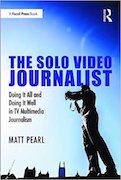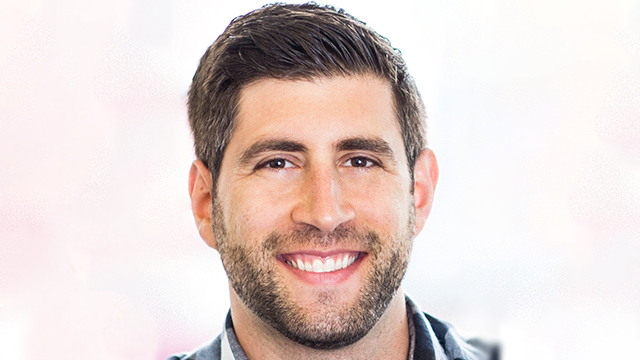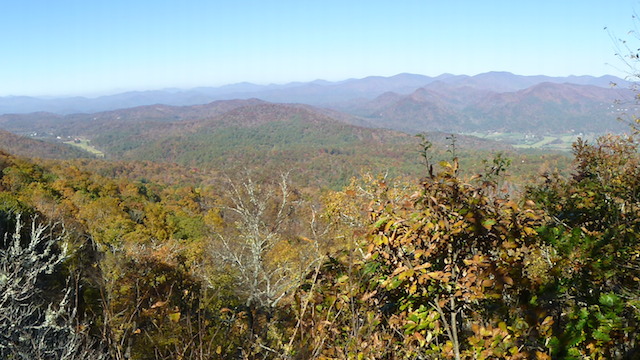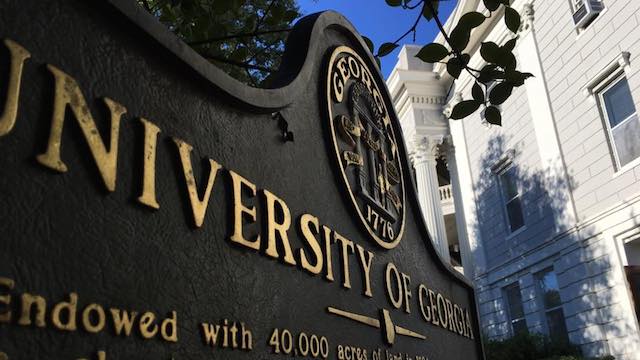In my career as a journalist, I have gone through numerous job interviews, as both interviewer and interviewee. I have never heard the following question:
How come you only have a Bachelor’s degree?
Most aspiring journalists try to enter the workforce as soon as they graduate, and they are not required to continue their schooling. Most news managers value experience and performance, and they expect their employees to develop in the “real” world, not the academic world.
Yet here I am, more than a decade removed from my last class at college, going back to school.
This week I officially became a student again, beginning a low-residency MFA program at the University of Georgia’s Grady Journalism School. For the next two years, I will attend several weeks of on-campus classes and meet remotely with various mentors and instructors as I earn my postgraduate degree in narrative nonfiction.
I will also continue to work full-time, marching forward as a reporter at WXIA-TV in Atlanta.
Does it sound like a lot of time? Does it sound like a ton of responsibilities to juggle at once? Does it sound like the type of effort that may go unnoticed by potential employers?
It sure does. But I welcome the challenge.
In my first years in the business, I often toyed with the idea of one day returning to school, but I never truly considered it. I faced more immediate career demands, wanting to establish myself as a journalist and advance to a market and station where I could — at least in the short term — settle down. (I also was scratching to afford rent and food, let alone five semesters of grad school.) Even after arriving in Atlanta, I never sought out additional education because I assumed it would require me to sacrifice my full-time job.
But in the past few years, my feelings began to change. I learned about programs at top-rated schools that catered to working journalists, and I watched several of my peers take advantage. I developed a passion for teaching, and I knew I would likely need a postgraduate degree if I ever wanted to join academia full-time. I came upon a program at UGA that hit every other check mark: it focused on in-depth and long-form nonfiction writing, featured a faculty full of journalism success stories, and required students to be on-campus for just two weeks a year. (It also offered a price tag that wouldn’t put me into debt.) I discussed the idea with my wife, and we decided I should apply.
So here I am, back at school … minus the lunchbox and No. 2 pencils.
I do not plan to use much of this space to discuss my UGA exploits, and I do not necessarily encourage other journalists to follow my path. This program enters my life at a near-perfect time both personally and professionally; I did not apply for it until I knew I could handle it.
But I do want to convey a broader lesson to my fellow storytellers: think beyond the usual.
Our business often forces its participants to think small. We face daily deadlines and increasing responsibilities, and we exert so much effort at work that we feel tempted to push aside any outside pursuits. But this can be short-sighted, especially in an media environment that demands versatility and flexibility. We should feel encouraged to stretch ourselves and take ownership of projects that take advantage of our skills and knowledge. Such a mindset, for example, is what led me to start this blog, develop a podcast, and write a full-length book about solo video journalism.
And I’m not alone. Last month I spoke on a panel with MMJ all-stars (and former Telling the Story podcast guests) Anne Herbst and Sarah-Blake Morgan. I realized we had more in common than simply shooting and editing our own reports. We have also built fulfilling projects outside of the newsroom. Morgan is one of the founders of the successful MMJane Facebook group, and Herbst runs an annual Women in Photojournalism conference. They didn’t ask for permission, and they didn’t worry about feeling overwhelmed. They used the same flexibility that helps them succeed as MMJs and applied it to new avenues.
I cannot speak for Herbst or Morgan, or for any of the other journalists who have pushed their limits to follow their passions. But I can tell you how I feel to have followed mine. I have been rewarded by every project I have tackled, from the blog to the podcast to the book. I approached each one methodically, thinking big and then taking the small steps to reach my goals. Beyond that, in each case, my work outside the newsroom has benefited my work inside the newsroom.
I expect those rewards to continue as I begin towards my MFA degree. I cannot say what this next big challenge will bring, but I am excited to see how it colors my perspective and improves my production as a storyteller.
I would encourage any journalist who feels the same to follow a similar path, no matter how you choose to do it.

The Solo Video Journalist is available for purchase. You can find it on Amazon, Barnes & Noble, and the publisher’s web site.
Matt Pearl is the author of the Telling the Story blog and podcast. Feel free to comment below or e-mail Matt at matt@tellingthestoryblog.com. You can also follow Matt on Facebook and Twitter.




